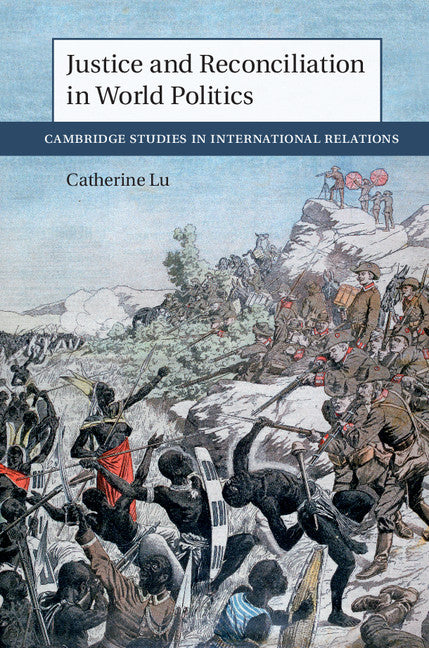Freshly Printed - allow 8 days lead
Couldn't load pickup availability
Justice and Reconciliation in World Politics
This book examines how justice and reconciliation in world politics should be conceived in response to the injustice and alienation of modern colonialism?
Catherine Lu (Author)
9781108420112, Cambridge University Press
Hardback, published 16 November 2017
320 pages
23.5 x 15.7 x 2.2 cm, 0.59 kg
'We generally think about injustice in the international domain in interactional terms, highlighting, for example, the injustices perpetrated on colonized peoples by imperial powers. This leads to the question: who owes what, to whom, to make reparation for past injustices? A host of problems bedevil this line of inquiry including this one: why should we (some of us, all of us?) be held accountable for actions of others long gone? What was done by empires, now vanished, was not our fault. In this work, Catherine Lu posits a robust challenge to the interactional approach. In its stead she presents a structural analysis which shows how our contemporary global practices may be seen as structurally unjust and how these emerged from earlier arrangements which themselves perpetrated structural injustices. In this thoughtful book she explores the implications of structural analyses for all who seek justice, reparation, the overcoming of structural alienation and the achievement of reconciliation.' Mervyn Frost, King's College, London
Calls for justice and reconciliation in response to political catastrophes are widespread in contemporary world politics. What implications do these normative strivings have in relation to colonial injustice? Examining cases of colonial war, genocide, forced sexual labor, forcible incorporation, and dispossession, Lu demonstrates that international practices of justice and reconciliation have historically suffered from, and continue to reflect, colonial, statist and other structural biases. The continued reproduction of structural injustice and alienation in modern domestic, international and transnational orders generates contemporary duties of redress. How should we think about the responsibility of contemporary agents to address colonial structural injustices and what implications follow for the transformation of international and transnational orders? Redressing the structural injustices implicated in or produced by colonial politics requires strategies of decolonization, decentering, and disalienation that go beyond interactional practices of justice and reconciliation, beyond victims and perpetrators, and beyond a statist world order.
Introduction
1. Justice and reconciliation: Versailles 1919
2. Pathologies of victimhood
3. Settling accounts
4. Agents, structures, and colonial injustice
5. History and structural injustice
6. Reconciliation and alienation
7. Reparations
8. Beyond reparations: towards structural transformation.
Subject Areas: International humanitarian law [LBBS], International human rights law [LBBR], International law [LB], Social theory [JHBA], Social & political philosophy [HPS]


